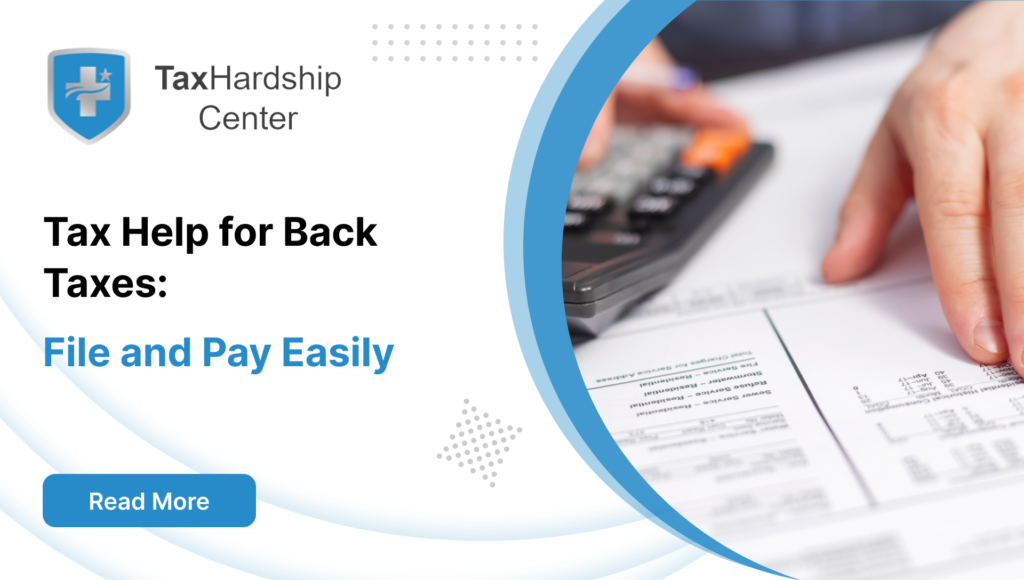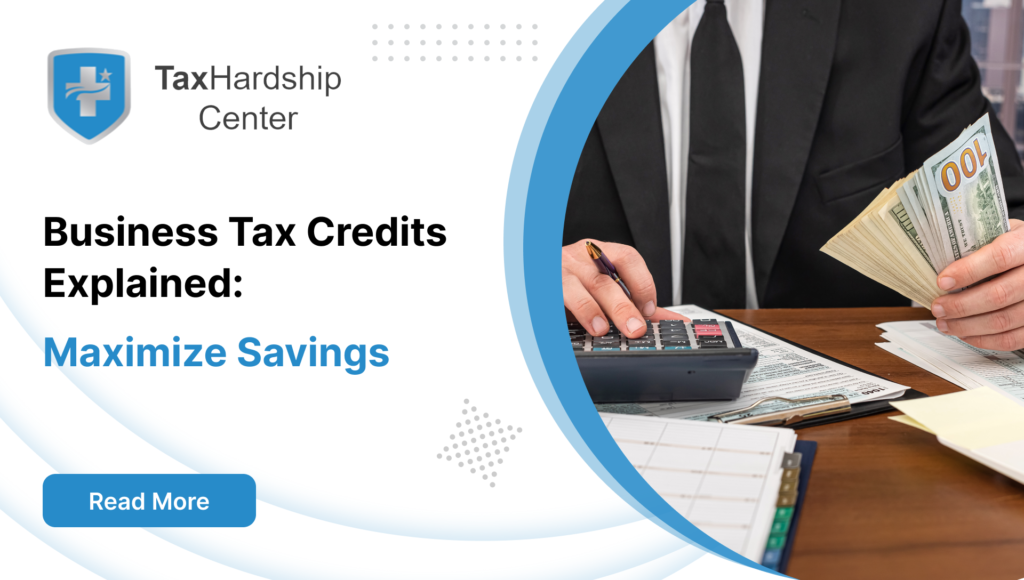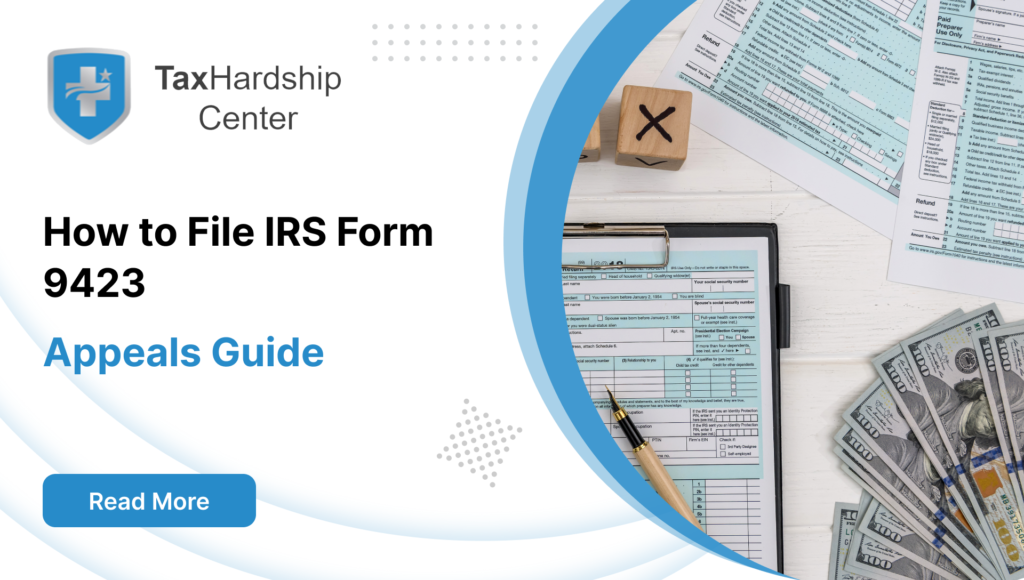Dealing with back taxes can feel overwhelming, but it doesn’t have to be. Whether you missed a few years or are unsure where to start, understanding the steps to get back on track is key. Filing past tax returns, paying dues, and learning the consequences of missing deadlines can help ease your tax burden. This guide will walk you through every aspect of back taxes, ensuring you know what to expect and how to resolve them efficiently.
What Are Back Taxes?
Back taxes refer to unpaid taxes from previous years. These might arise if you didn’t file your return, misreported income, or couldn’t pay your owed tax amount. The IRS keeps track, and interest or penalties accrue until the debt is resolved.
Why Do Back Taxes Matter?
The IRS doesn’t forget unpaid taxes. Ignoring them can lead to penalties, interest charges, or even legal actions such as liens or wage garnishments. Addressing back taxes promptly reduces these risks and helps restore your financial peace of mind.
Understanding IRS Notices
If you owe back taxes, the IRS will send several notices. The most common is the CP501 Notice, which informs you of the amount due. If you ignore these, subsequent notices escalate the urgency and consequences. Responding quickly can prevent further actions and penalties.
Need Help With Back Taxes? Tax Hardship Center Can Assist
At Tax Hardship Center, we understand how overwhelming it can be to deal with back taxes. It’s not just about the financial burden—the stress, the penalties piling up, and the fear of IRS action. Our team specializes in helping individuals and businesses navigate these challenges. Whether you’re facing years of unfiled tax returns or mounting penalties, we’re here to provide solutions tailored to your situation.
Our approach begins with a comprehensive review of your tax history. We work closely with you to identify any discrepancies, missing returns, or opportunities for deductions and credits that could reduce your tax burden. By ensuring every detail is accurate and up-to-date, we maximize your chances of resolving back taxes efficiently.
For those who need more time to pay, we can assist with setting up IRS installment agreements. We’ll negotiate on your behalf, helping you secure a manageable plan that fits your budget. Additionally, if you qualify, we’ll explore options like the Offer in Compromise, allowing you to settle your tax debt for less than what you owe.
Tax issues are not something you have to face alone. Our experts guide you every step of the way, offering support and practical strategies to put you back on track. We’ve helped thousands of clients reduce their back tax burdens and regain their financial peace of mind. Let us help you get the fresh start you deserve.
Ready to take action? Contact Tax Hardship Center today and find out how our tailored solutions can resolve your back taxes quickly and efficiently. We’re committed to making your tax relief journey as smooth as possible.
How Many Years Do I Have to File My Tax Return?
The IRS generally allows you to file a tax return for up to six years. However, if you owe taxes, it’s better to act as soon as possible to minimize penalties.
Filing Requirements by Year
Different years may have different filing requirements based on changes in tax laws or income thresholds. Review the IRS guidelines or consult a tax professional to understand what applies for each year you’ve missed.
Can the IRS Waive Penalties for Old Taxes?
The IRS may waive penalties for late filing or payment if you demonstrate reasonable cause, such as a medical emergency or natural disaster. Requesting penalty abatement can save you money if you qualify.
How Do I File Taxes From Previous Years?
To file past tax returns, gather your tax documents and use IRS Form 1040 for each year. You can also download prior-year forms from the IRS website. Filing online for previous years may not be available, so a paper submission is often required.
Steps to Filing Old Returns
- Collect Your W-2s and 1099s: These forms report your annual income and taxes withheld.
- Review IRS Transcripts: The IRS provides wage and income transcripts that show what was reported to them.
- Fill Out the Correct Forms: Use Form 1040 and any other applicable forms for the respective years.
- Mail Your Returns: Send your completed forms to the IRS address listed on the website.
Can I File Past Taxes Myself, or Do I Need Help?
You can file past returns on your own if your situation is straightforward. However, consulting a tax professional may help avoid errors and reduce penalties if you owe substantial amounts or face complex tax issues.
How Far Back Can I File My Taxes?
While the IRS allows filing for up to six years, they may still require older returns if fraud is suspected. However, if you file within the six-year window, the chances of resolving issues without severe penalties are higher.
Filing More Than Six Years Back
If you must file beyond the six-year mark, consult a tax advisor to navigate IRS procedures and reduce potential consequences. Although less common, working out a resolution with the IRS is possible.
What Is the Penalty for Filing Taxes Late?
Penalties for late filing vary. The IRS charges a monthly fee of 5% of your unpaid tax for up to five months after the deadline. Interest accrues until the balance is paid, which can add up quickly.
Penalties for Non-Filers
If you fail to file, the IRS may file a Substitute for Return (SFR) on your behalf. These filings often don’t consider deductions or credits, leading to a higher tax bill. Filing your returns to correct these errors and reduce your debt is crucial.
Avoiding Penalties
To minimize penalties, file your taxes even if you can’t pay the full amount immediately. The IRS offers payment plans that help reduce penalty accumulation.
Do I Have to File Back Taxes If I Have Been Paying Income Tax?
If your employer has withheld income taxes but you haven’t filed returns, you may still owe or be owed. The IRS may have withheld too much or too little from your paycheck.
Determining Your Filing Status
Check your filing status for each year. You might be entitled to a refund if you qualify for certain deductions or credits, such as the Earned Income Tax Credit (EITC). Filing can ensure you get what’s owed.
Getting Tax Help
Even if you’ve been paying taxes through your employer, consulting a tax professional can help you identify whether any adjustments or filings are needed to avoid IRS penalties.
How and Where Do I Pay Back Taxes?
Paying back taxes involves calculating your dues, filing the appropriate returns, and settling your debt with the IRS.
Online Payment Options
The IRS offers several online payment methods:
- Direct Pay: This allows you to pay directly from your bank account.
- Debit/Credit Cards: You can use your card for payments, but processing fees exist.
- IRS Payment Plan: If you owe more than you can pay immediately, the IRS offers installment agreements to spread payments over time.
Mailing a Payment
If you prefer mailing a payment, make sure you include the correct form and payment voucher. Use the IRS address listed for your location and method of payment.
Tax Relief Programs for Back Taxes
If paying your back taxes in full isn’t possible, the IRS provides options like the Offer in Compromise (OIC), which allows you to settle your debt for less than the full amount.
Applying for an Offer in Compromise
To apply, fill out IRS Form 656 and provide financial documentation showing that paying the full amount would cause undue hardship. The IRS reviews your application and determines your eligibility based on income, expenses, and asset value.
Payment Plans and Extensions
If you don’t qualify for an OIC, you might still benefit from setting up an IRS payment plan. This lets you pay your debt in monthly installments. Sometimes, you can also request an extension to file if you need more time to gather documents.
In Conclusion
Don’t let back taxes weigh you down. Filing and paying past due taxes is manageable with the right approach. Start by gathering your documents and filing past returns, and consider consulting a tax professional for help. The sooner you act, the more options you have to reduce penalties and settle your debt. If you’re ready to get started, contact Tax Hardship Center today to regain control of your financial situation.
Why Tax Hardship Center?
1. Hassle-Free Assistance
Say goodbye to sleepless nights and endless tax-related stress. At the Tax Hardship Center, we believe in simplifying the complex. Our team of experts is dedicated to guiding you through every step of the process, ensuring that your tax concerns are met with precision and care.
2. 14-Day Money Back Guarantee
We’re so confident in our ability to ease your tax worries that we offer a 14-day money-back guarantee. If, for any reason, you’re not satisfied with our service, we’ll gladly refund your investment. Your peace of mind is our top priority!
3. Free Consultation
Are you curious about how we can transform your tax experience? Book a free consultation now! Our team will assess your situation, answer your questions, and provide free insights tailored to your needs.
4. Nationwide Coverage
No matter which corner of the United States you call home, the Tax Hardship Center covers you. We proudly serve all 50 states, bringing our expertise to your doorstep. Wherever you are, our commitment to excellence follows.
FAQs
1. What happens if I don’t file back taxes?
If you fail to file, the IRS may file a substitute return for you, which often lacks deductions and credits, leading to higher taxes and penalties.
2. Can I negotiate my tax debt with the IRS?
Yes, you can negotiate through the Offer in Compromise program, where you settle for less if you demonstrate that paying the full amount is impossible.
3. How long does the IRS keep back tax records?
The IRS typically keeps records for seven years but may review older files if they suspect fraud or significant underreporting.
4. What’s the fastest way to pay back taxes?
The quickest method is to pay online via IRS Direct Pay, which directly links your bank account to settle the amount owed.
5. Can I still get a refund if I file late?
You might receive a refund if you file within three years of the original due date and are eligible for credits or overpaid taxes.







